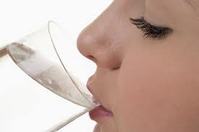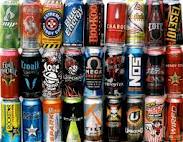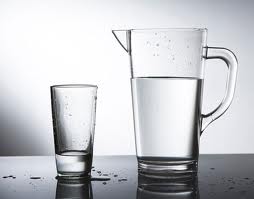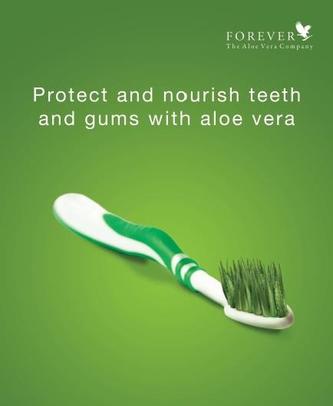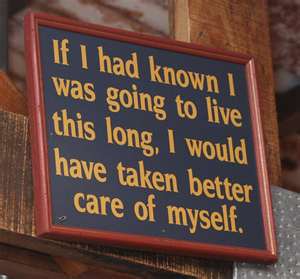Option: A great way to increase your water consumption without drinking more water is to eat more salads, vegetable and fruits. They all contain a high percentage of water and essential nutrients.
|
Chlorinated water can destroy nutrients your body needs, such as Vitamin A, B, C and E and fatty acids. Some chronic skin conditions like eczema, acne and psoriasis may clear up or improve by simply switching to unchlorinated drinking water.
Option: A great way to increase your water consumption without drinking more water is to eat more salads, vegetable and fruits. They all contain a high percentage of water and essential nutrients.
0 Comments
 Candida is a fungal yeast that grows in the human digestive tract, genitals, mouth and throat, heart valves, bloodstream and vagina. The immune system regulates the growth of candida, but if the body's immune system is weak, it grows without restraint and causes infection. The symptoms of candida overproduction, commonly referred to as candida or candida infection, vary widely and can impact multiple systems of the body. Medical testing for candida is necessary to determine appropriate treatment. 1. Symptoms o Common symptoms of candida are gas, headaches or migraines, exhaustion, cravings for food or alcohol, anxiety, inability to think, hyperactivity, diarrhea, hyperactivity, constipation, itching, acne, depression, inflammation of the sinus passages, difficulty with memory, coughing and earaches, problems with libido, indigestion and reflux, and chronic pain. The symptoms can vary between different systems in the body. Stool Sample o Testing for candida usually begins with a stool analysis, which examines the levels of bacteria and microflora, yeast and pathogens. A stool sample will help determine if yeast is the source of symptoms. Blood Test o Candida can also be tested through a blood sample from a tube or finger prick, which is sent to a lab to determine what antibodies are present. The blood sample can be taken at a doctor's office, lab or at home. Throat Culture o A throat culture might be taken to test for candida or diagnose the growth of other bacteria or fungi in the throat. During the test, a doctor swabs the back of the throat. The sample is put in a cup that allows it to grow. If the infection grows, the culture will be positive and a lab technician will use chemical tests and a microscope to determine what type of infection is causing the symptoms. Tissue Biopsy o If the infection is systemic, a doctor may take samples from various organs and a pathologist will review the tissue under a microscope. This will help to determine the extent to which candida has spread. Treatment o The majority of candida infections may be treated with prescription medication or over-the-counter antifungals, but it often depends on the location of the infection. Most medications can be taken orally or as a topical cream. A serious or systemic candida infection may require hospitalization. Complications o If candida is left untreated, it can rupture the intestinal lining and enter the bloodstream, which can lead to the development of lethal diseases. As it spreads to other parts of the body, it multiplies and can cause problems in the joints, muscle pain, fatigue, urinary tract infections and problems with other organs. If the body's immune system is not capable of fighting off the infection, it can result in blood poisoning (septicemia). In this case, the infection has spread throughout the body's tissues and lymphatic system. 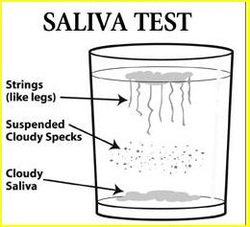 Click on "Saliva Test" for more detailed information...  One in four adults experience some form of mental health problems at some point in their lives. Anxiety, depression and severe mental problems such as schizophrenia affect not only the individuals concerned but also their families and friends. Mental health problems result in reduced quality of life and possibly loss of life. It is therefore important to understand mental distress and the ways it can be treated. The World Health Organization defines mental health as "a state of well-being in which the individual realizes his or her own abilities, can cope with the normal stresses of life, can work productively and fruitfully, and is able to make a contribution to his or her community." Evidence from the World Health Organization suggests that nearly half the world's population are affected by mental illness with an impact on their self-esteem, relationships and ability to function in everyday life. An individual's emotional health can also impact physical health and poor mental health can lead to problems such as substance abuse. The importance of maintaining good mental health is crucial to living a long and healthy life. Good mental health can enhance one’s life, while poor mental health can prevent someone from living a normal life. To keep toxins moving through the colon the average adult needs to eat 25-30 grams of fiber daily. Whole fresh fruits and vegetables are excellent sources of fiber.
A serving of vegetables is 1 cup of raw vegetables or 1/2 cup of cooked vegetables. A serving of fruit is either, 1 cup berries or melon chunks, 1/2 cup cut fruit, 1 medium piece of fruit such as apple, orange or plum. The liver is the most important organ for detoxifying the body. Eating broccoli, cabbage, brussel sprouts, kale and cauliflower increase the capacity of the liver to detoxify harmful toxins from your body. Ask yourself, how healthy am I? Do I incorporate elements of health in my life, fresh air, pure water, whole food, exercise, rest and sleep, deep breathing, sunshine and peace?
Persistence makes up for lack of skill in anything you choose to master, especially when you are working towards your fitness goals. Research shows being outdoors lowers stress and promotes a sense of well-being. Gardening will burn around 340 calories per hour. Enjoy making your yard look great by getting out the hoe, rake, and shovel. Spend time creating a beautiful garden to enjoy while getting in shape at the same time.
Research also shows that walking on a regular basis seems to reduce the amount of memory protecting brain tissue you lose with age. Many people (specifically our teens and young adults) rely on energy drinks and/or medications to keep them awake longer. When you cheat your body of the sleep it needs, your health will suffer. Your risk for stroke, diabetes, weight gain, heart attack and pre-mature aging increases.
More from LIZ NEPORENT, ABC Medical Unit Feb. 14, 2011 Members of the men's swim team at Midlakes High School in Rochester, N.Y., would often complain of feeling dizzy, shaky and hyper during practice; sometimes they'd vomit in the middle of a workout. Coach R.C. Weston knew their sickness wasn't related to lack of conditioning or overtraining. "It was directly related to their consumption of energy drinks," he said. The swimmers admitted that downing an energy drink before practice didn't help their performance -- in fact they were left feeling unfocused and dehydrated -- but they drank them anyway because they "taste amazing" and the "heightened sensation makes you feel more energetic." Team members are now banned from drinking them while in training. A new report by University of Miami experts in the March issue of Journal Pediatrics, published online today, warns that caffeine-containing energy drinks like Red Bull, Rock Star and Monster -- not to be confused with sports drinks like Gatorade -- may do more than just give young athletes the jitters. They may harm the health of children, especially those with diabetes, seizures, cardiac abnormalities or mood and behavior disorders. Energy drink overdoses in children as young as 5 have been reported both here and abroad and in some cases have resulted in seizures, stroke and even sudden death. While the paper contains no new information per se, lead author and pediatrician, Dr. Steven E. Lipshultz, said he believed this was the first systematic review of the effects of energy drinks on children 19 and younger. "We looked at 121 sources. More than two-thirds were previously published scientific literature plus government agency and special interest group reports; the rest were the websites and marketing materials from the markers of energy drinks," Lipshultz explained. Lipshultz said the authors wanted to create a comprehensive resource for pediatricians, sports coaches and families to get accurate information about what's in energy drinks and what problems they can cause for young people. Energy drinks are the fastest growing U.S. beverage market with sales expected to top $9 billion in year 2011. More than half the market is under 25 years of age and 30-50 percent of adolescents and young adults consume energy drinks. A quick perusal of packaging, websites and marketing material for the beverages shows they are clearly aimed at the youth market. High Caffeine Content May Put Some Young People at Risk Manufacturers of the popular beverages bristled at the notion that the products could put young people's health at risk. Jack Owoc, the CEO of VPX, the company that produces the Redline series of energy drinks, objected to the idea that all high-caffeine beverages should be measured by the same standard. He said his line of beverages -- some of which contain 250 mg of caffeine per 8-ounce can -- are dietary supplements and that the drinks already contain package warnings that they are not for sale to those younger than 18. "Redline is a dietary supplement and dietary supplements fall under strict [good manufacturing practice] guidelines set forth by the FDA," Owoc said in a statement. "Whatever the guidelines the FDA sets up we will gladly follow." In a written response, Maureen Storey, senior vice president of science policy at the American Beverage Association, an industry group, said the report "does nothing more than perpetuate misinformation" about energy drinks. All that to say, please drink to your health and not your death! Water is the single most important nutrient for your body. Your body loses about two quarts of water every day through perspiration, urination and exhalation.
Water plays an important role in controlling your body temperature, cushioning your joints, removing waste, transporting nutrients and oxygen to cells and protecting organs and tissue. Instead of reaching for soda, drink pure water throughout the day. Cheers! One of the best toothgels on the market, Forever Bright contains only the highest quality ingredients. Uniquely aloe-based and formulated with Bee Propolis, it provides the optimum formula for effective cleaning. And because it’s fluoride-free, Forever Bright is gentle enough for the whole family to use (even those with the most sensitive gums)! Try it today - your gums will thank you!
See link the following link for more information on the dangers of fluoride... http://www.unhealthyearth.com/2012/07/the-poison-in-your-water-is-fluoride.html?utm_source=feedburner&utm_medium=twitter&utm_campaign=Feed%3A+unhealthyearth%2FRftm+%28UnHealthyEarth%29 Choosing healthy habits over unhealthy habits can be challenging, but it is easier than facing early aging of the mind and body. Looking for motivation, visit a nursing home to see the results of unhealthy habits.
|
about the AuthorSonia is an advocate for 'Natural Holistic Alternatives' while sharing easy everyday solutions. Categories
All
Archives
June 2022
|

